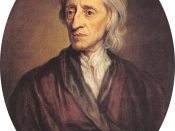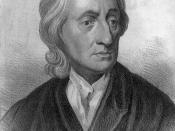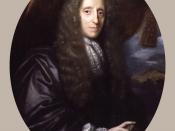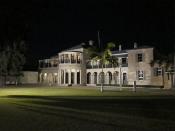John Locke had his own views on many of the major Enlightenment ideas. He firmly believed in natural law: that man has a right to life, liberty, and property. He believed that man had to make a "social contract" which governed morality and how to live. He had firm beliefs about government. He thought that government had a duty to the people whom they governed. That if the people felt as though the government was not just, they had a right to overthrow the government. With his belief of natural law, he believed that government had to follow this law in order to rule justly.
John Locke was very important to the Enlightenment age. He improved on Pierre Gassend theory of the mind as a "white paper" which was written on by experiences throughout life. He felt that through these life experiences man came up with ideas. Two simple ideas together then created a more complex idea.
Because of his feelings about the mind he had very strong feelings about education. He felt that boring exercises were not the way to learn, but the mind should be actively engaged. That learning should be tailored to the learner rather than a mass lesson for all to learn from. Locke's ideas on government were very important during the enlightenment age. He had theories on constitutional monarchy and the separation of church and state. His theories on government are still accepted to this day.
John Locke's theories on government played a key role in the American Revolution. His theory about government, natural law and a duty to the governed, let the colonist, in their minds, defend the revolution. His ideas helped the continental congress to create the constitution.





